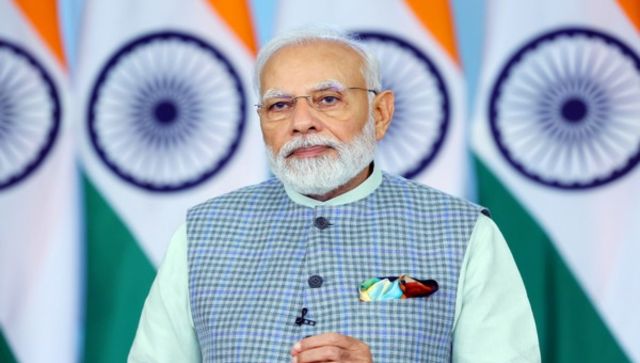Prime Minister Narendra Modi hailed the Supreme Court’s verdict on Article 370 and said it is not just a legal judgment, but a beacon of hope. “The verdict today is not just a legal judgment; it is a beacon of hope, a promise of a brighter future and a testament to our collective resolve to build a stronger, more united India,” the Prime Minister said in a post on X, using a hashtag #NayaJammuKashmir. ‘Resounding declaration of hope’ PM Modi further said the apex court’s verdict on the abrogation of Article 370 is “historic and constitutionally upholds the decision taken by the Parliament of India on 5th August 2019; it is a resounding declaration of hope, progress and unity for our sisters and brothers in Jammu, Kashmir and Ladakh.” “The Court, in its profound wisdom, has fortified the very essence of unity that we, as Indians, hold dear and cherish above all else,” the Prime Minister said. PM Modi’s assurance to people of J&K The Prime Minister further said he wanted to assure the “resilient” people of Jammu, Kashmir and Ladakh that “our commitment to fulfilling your dreams remains unwavering.” “We are determined to ensure that the fruits of progress not only reach you but also extend their benefits to the most vulnerable and marginalised sections of our society who suffered due to Article 370,” he said.
Today's Supreme Court verdict on the abrogation of Article 370 is historic and constitutionally upholds the decision taken by the Parliament of India on 5th August 2019; it is a resounding declaration of hope, progress and unity for our sisters and brothers in Jammu, Kashmir and…
— Narendra Modi (@narendramodi) December 11, 2023
Supreme Court Article 370 verdict On Monday, 11 December, 2023, the Supreme Court upheld the government’s decision to abrogate Article 370 and said steps should be taken to conduct elections in the assembly by 30 September, 2024. Article 370 bestowed special status on the erstwhile state of Jammu and Kashmir. The court also directed that statehood to the union territory of Jammu and Kashmir be restored at the earliest. Also Read: Supreme Court upholds abrogation of Article 370 in J&K The top court also upheld the validity of the decision to carve out the union territory of Ladakh from Jammu and Kashmir on 5 August, 2019. On that day, the government abrogated Article 370 and bifurcated the state into two union territories - Jammu and Kashmir, and Ladakh. The bench comprising CJI D Y Chandrachud and Justices Gavai, Surya Kant, Sanjay Kishan Kaul, Sanjiv Khanna, assembled on Monday morning to pronounce the three separate and concurring judgements Justices Kaul and Khanna wrote their judgments separately. Writing the judgement for himself and Justices Gavai and Kant, CJI Chandrachud said Article 370 of the Constitution was a temporary provision and the president has the power to revoke it. In his concurring judgment, Justice Khanna said the purpose of Article 370 was to slowly bring Jammu and Kashmir at par with other Indian states. He directed the setting up of a truth-and-reconciliation commission to probe human rights violations both by the state and non-state actors. The Supreme Court reserved its verdict in the matter on 5 September after a 16-day marathon hearing on a batch of petitions challenging the abrogation of the provisions of Article 370. With inputs from PTI


)

)
)
)
)
)
)
)
)



